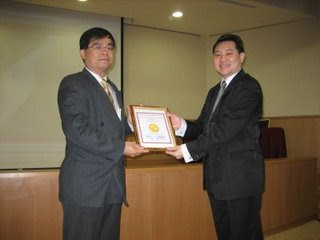
Through the Min-Sheng Health Care System and the Taiwan Dementia Association, a Japanese delegation was invited to Taiwan on April 25. The main purpose of the trip was to promote dementia care and the prevention of dementia through the exchange of experiences. It was hoped that the trip to Taiwan would allow both countries to express their deep concerns for patients with dementia and the elderly in order to create a better society.
Dementia Society Secretary General Tang stressed that the dementia care community will be an important issue to face in the future. The society encourages elders to participate in activities such as gymnastics, art, nostalgia and tourism in order to slow the onset of dementia.
The Tokyo Research Institute points out that participating in tourist activities can effectively enhance the activation of brain cells while arousing a sense of community involvement, which may relax mild dementia in the elderly.
$31.5 billion NTD Will Be Spent Caring for Taiwanese Suffering from Dementia
The executive director of the Taiwan Society of Dementia stated that the current number of Taiwanese suffering from dementia is approximately 150,000 people, but within the next ten years, the number will reach 200,000. He believes, therefore, that the construction of social welfare resources and planning for a long-term care system will be necessary in the future.
Low Healthcare Cost Is Taiwan’s Competitive Advantage with regard to International Medical Tourism
According to the Taiwan Tourism Bureau, data show that were the Japanese to come to Taiwan for health checks and PET (brain CT and possible diagnosis of dementia), they would save $80,000 NTD. Moreover, they could also partake in recreation and tourism, thus bolstering both the medical and tourist industries.
In the short term, Min-Sheng and its Japanese partners will reach a consensus on a period of less than one month for a “short stay,” which includes a brain CT scan, prescriptions, and health promotion activities designed to effectively help the Japanese slow the advance of dementia. In the long run, Min-Sheng will integrate the services of its Yide Conservation Center and health park to allow Taiwanese and Japanese seniors to live longer and to enjoy nature and leisure activities.




